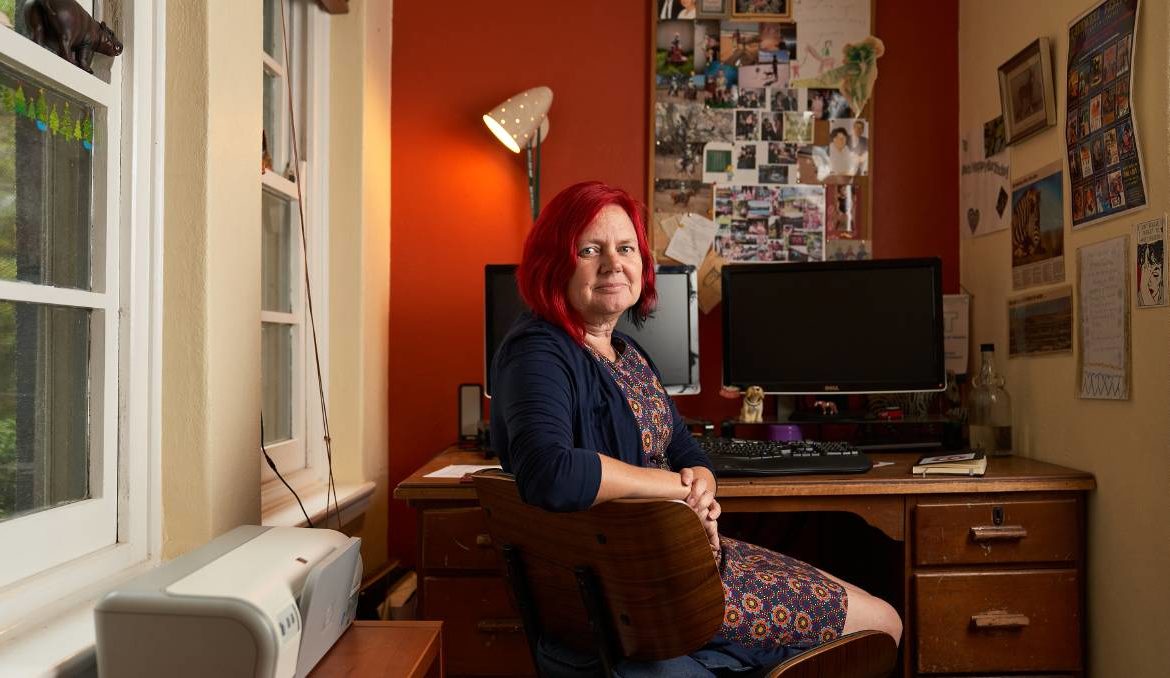news, latest-news, Tenants’ Union ACT, Legal Aid ACT
Tenants’ Union ACT is coming to terms with the prospect it might not survive much longer as an independent organisation. The territory government put the legal advice service to tender in late 2019. The union lost out to Legal Aid ACT and was stripped of its government funding, which it had depended on for more than 25 years. Since the union shut its doors in February last year, it has continued on as a volunteer organisation reliant on people giving their time, its leftover surplus – currently only a couple of thousand dollars – and online registrations to keep its website “bubbling over”. But long-time executive officer Deb Pippen said it was now in talks to see if it could combine with or be subsumed into another territory organisation, like ACT Shelter. “People have been able to do a bit in between their [other] work [but] really, there isn’t anything. There’s a volunteer management committee and there’s no staff,” Ms Pippen said. “It’s very hard for an organisation to come back; we don’t have an office, we don’t have a phone, we’ve got a [post office] box and [ACT] Shelter is listed as our address; that’s a real address.” Ms Pippen said she and other staff at Tenants’ Union ACT had to scramble to find paid work before the contract for the advice service officially went to legal aid in April last year. While most had gotten jobs, Ms Pippen said that added somewhat to the sadness of the situation. “You’ve got all these people who had that expertise … [who] now have jobs in other areas,” she said. “Canberra is not like Sydney or bigger cities that have different tenancy services across it. We were it, so there was nowhere for people to go to use their skills and their knowledge. “[I think that is] a really big loss.” When the ACT government put the legal advice service to tender, the Justice and Community Safety Directorate said it was to ensure it provided “the best value for money and quality of service for the Canberra community”. Legal Aid ACT’s chief executive John Boersig later said the organisation had increased its resources to ensure “continuity of service”. But Ms Pippen said legal aid wasn’t there to advocate for renters like the tenants’ union was. “That’s not their job, that’s not what they’re supposed to do, and that’s not what they’re funded to do,” she said. “[The] Tenants’ Union’s concern is about tenant voices and tenant advocacy in the ACT.” Ms Pippen said if the union could work with other organisations to make sure there was some formal advocacy for Canberra renters, “it may be that the tenants’ union just can’t continue”. She said the union would only step back and “fold up” if its volunteers could be certain there would be another avenue for tenants’ advocacy left in its wake. READ MORE: “People in other services and people here just can’t believe that … the ACT government decided [Canberra renters] weren’t worthy of having their own specialist service that did so much,” Ms Pippen said. “We supported other tenant groups and now we’ve got less resources than any of those groups, so we can’t help them either. It’s a really sad thing.” The ACT government funding the tenants’ union received came from interest earned on bonds lodged with the Office of Rental Bonds.
/images/transform/v1/crop/frm/5W4iRw6LNH53uM23K5syYZ/72d2e4a1-30bc-4809-85a6-2385b5426081.jpg/r0_141_3000_1836_w1200_h678_fmax.jpg
Tenants’ Union ACT is coming to terms with the prospect it might not survive much longer as an independent organisation.
The territory government put the legal advice service to tender in late 2019.
The union lost out to Legal Aid ACT and was stripped of its government funding, which it had depended on for more than 25 years.
Since the union shut its doors in February last year, it has continued on as a volunteer organisation reliant on people giving their time, its leftover surplus – currently only a couple of thousand dollars – and online registrations to keep its website “bubbling over”.
But long-time executive officer Deb Pippen said it was now in talks to see if it could combine with or be subsumed into another territory organisation, like ACT Shelter.
“People have been able to do a bit in between their [other] work [but] really, there isn’t anything. There’s a volunteer management committee and there’s no staff,” Ms Pippen said.
“It’s very hard for an organisation to come back; we don’t have an office, we don’t have a phone, we’ve got a [post office] box and [ACT] Shelter is listed as our address; that’s a real address.”
Ms Pippen said she and other staff at Tenants’ Union ACT had to scramble to find paid work before the contract for the advice service officially went to legal aid in April last year.
While most had gotten jobs, Ms Pippen said that added somewhat to the sadness of the situation.
“You’ve got all these people who had that expertise … [who] now have jobs in other areas,” she said.
“Canberra is not like Sydney or bigger cities that have different tenancy services across it. We were it, so there was nowhere for people to go to use their skills and their knowledge.
“[I think that is] a really big loss.”
When the ACT government put the legal advice service to tender, the Justice and Community Safety Directorate said it was to ensure it provided “the best value for money and quality of service for the Canberra community”.
Legal Aid ACT’s chief executive John Boersig later said the organisation had increased its resources to ensure “continuity of service”.
But Ms Pippen said legal aid wasn’t there to advocate for renters like the tenants’ union was.
“That’s not their job, that’s not what they’re supposed to do, and that’s not what they’re funded to do,” she said.
“[The] Tenants’ Union’s concern is about tenant voices and tenant advocacy in the ACT.”
Ms Pippen said if the union could work with other organisations to make sure there was some formal advocacy for Canberra renters, “it may be that the tenants’ union just can’t continue”.
She said the union would only step back and “fold up” if its volunteers could be certain there would be another avenue for tenants’ advocacy left in its wake.
“People in other services and people here just can’t believe that … the ACT government decided [Canberra renters] weren’t worthy of having their own specialist service that did so much,” Ms Pippen said.
“We supported other tenant groups and now we’ve got less resources than any of those groups, so we can’t help them either. It’s a really sad thing.”
The ACT government funding the tenants’ union received came from interest earned on bonds lodged with the Office of Rental Bonds.







